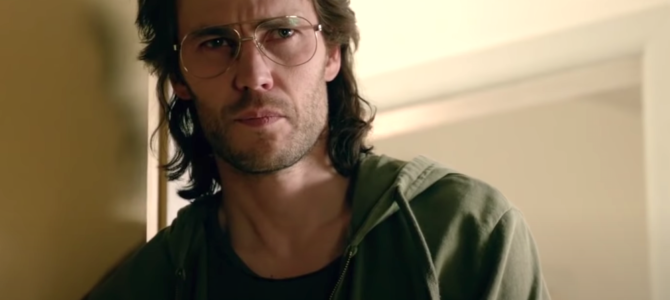
It may be difficult for a TV show to elicit sympathy for cultists shooting at cops, but the new-to-Netflix series “Waco” manages it. This is the show the government’s malicious incompetence richly deserves.
It is not kind to Branch Davidian leader David Koresh, who is portrayed as the charismatic false prophet and sexual predator he was. But he did not attack, torment, and eventually incinerate dozens of men, women, and children. Government agents did that.
Of course, that is disputed. The government insisted the Davidians shot first in the initial raid and that they started the final blaze to commit mass suicide. This would be more credible if the FBI had not spent years lying about its use of potentially incendiary weapons against the compound. We will never know all that happened, in part because some evidence that survived the fire then went missing, but we do know the government lied about what happened outside Waco, Texas.
‘Waco’ Portrays the Horrors of Real-Life Events
Drawing heavily from books by Davidian survivor David Thibodeau and FBI negotiator Gary Noesner, “Waco” portrays the government campaign against the sect as vicious and incompetent from the start. Instead of quietly arresting Koresh and other suspects when they left the compound, the Bureau of Alcohol, Tobacco, and Firearms launched a militarized assault as a PR stunt. The agency even falsely claimed the sect was making meth in order to get helicopters for its made-for-TV operation, which was literally named “Showtime.”
“Waco” then shows nervous, trigger-happy ATF agents opening fire on a compound they knew was full of women and children, wounding Koresh and killing and wounding others. The Davidians returned fire, and the FBI oversaw the ensuing siege, which ended with most of the Davidians dying in an inferno amid, and perhaps caused by, an FBI attempt to gas them out.
This makes for harrowing viewing, with the intensity amplified by our foreknowledge of the dreadful finale. Scenes of what we know is false hope hurt to watch. The emotional response is a testament to the quality of the directing and acting. In particular, Taylor Kitsch is excellent as Koresh, and Michael Shannon does good work as FBI negotiator Noesner, who tries to broker a deal while restraining his gung-ho fellow agents.
Noesner is portrayed as the most perspicacious of the government agents, yet even he was too indifferent to the religious motivations of those with whom he negotiated. The rest of the FBI seemed not to care at all. This is understandable, if not excusable, and the writers of this show obviously struggled with how much of the Davidians’ peculiar eschatology to explain. But they succeeded in conveying the centrality of genuine belief, however misguided and heretical, among the Davidians, as well as the FBI’s error in not bothering to understand the beliefs of the besieged.
This does not excuse the Davidians, let alone Koresh, but they were a small, self-isolating group of religious weirdos. The government could easily have been patient in its initial efforts and in obtaining a peaceful surrender after the confrontation had begun. Instead, the ATF went in guns-blazing, and the FBI harassed the Davidians with psychological warfare tactics, eventually sending in tanks to gas them, even knowing the children would be especially vulnerable.
Law Enforcement Requires Accountability
Unlike Koresh, this show does not preach, but the events it portrays are a somber lesson. It wrenchingly illustrates the dangers of law enforcement militarization; the ATF and the FBI viewed themselves as an occupying army, rather than as law enforcement looking to keep the peace and protect fellow citizens. The local sheriff would have probably done much better despite — or rather because of — having much less firepower.
This is another lesson. The best case for localism and limited government is not based on abstract theories spun by the likes of John Locke or J.S. Mill, but on recognition that government consists of people, with all their follies and failures. Every law is ultimately backed up by armed and imperfect agents of the state, and therefore keeping government power limited and mostly local is often prudent. Local officials are not necessarily smarter or more moral than their national counterparts, but they are more likely to know the lay of the land and to have to live amid the consequences of their decisions.
Regarding those consequences, law enforcement is still not held accountable as often as it should be. Although we have not yet witnessed another catastrophe on the scale of what happened to the Branch Davidians, there remains a grim tally of citizens unjustly killed by cops who go unpunished.
A horrible coda to Waco became the Oklahoma City bombing, when Timothy McVeigh took it upon himself to exact revenge — an eye for an eye, a tooth for a tooth, a dead child for a dead child. McVeigh was justly executed; the government officials who created the Waco catastrophe never faced so much as community service for their mistakes and mendacity.
They were not as deliberately evil as McVeigh, but they were at best, liars and incompetents, and at worst, negligently homicidal. At the least, “Waco” will cement that shameful legacy.









